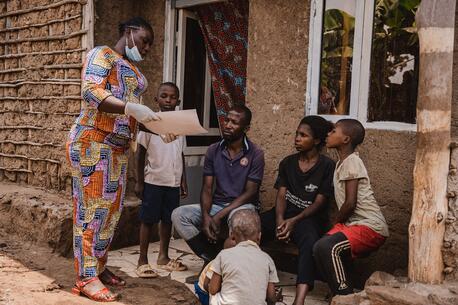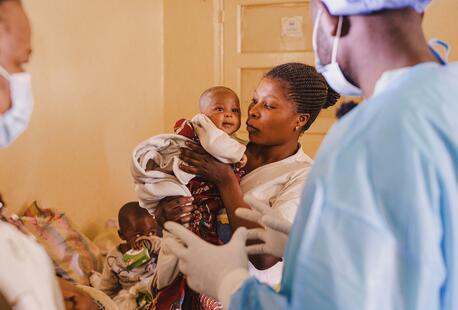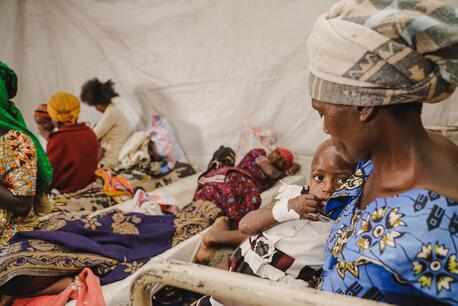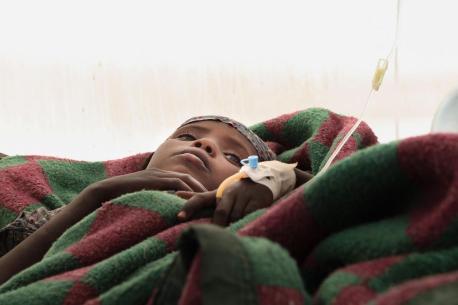
UNICEF Fights Fast-Spreading Cholera Outbreaks in Africa
Cholera cases are on the rise in eastern and southern Africa, leaving 28.4 million people in need across 11 countries. UNICEF is working with partners to improve critical health, water, sanitation and hygiene services.
The cholera treatment tents at Area 25 clinic near Chikanda, Malawi, are filled with patients of all ages — mothers, fathers, children — at various stages of sickness. Some are hooked up to IVs; others take oral rehydration salts. Others are asleep, too weak to stay awake.
Despite the overwhelming number of patients, the tents are well organized, each bed equipped with plastic basins and pails to treat patients recovering from the virulent intestinal disease.
Cholera is caused by eating food or drinking water contaminated by the bacterium Vibrio cholerae. Symptoms — violent cramps, vomiting, acute diarrhea — lead to severe and rapid dehydration. If caught in time, cholera is easily treatable. If not, it can kill within hours.
Weak, malnourished children are most at risk.
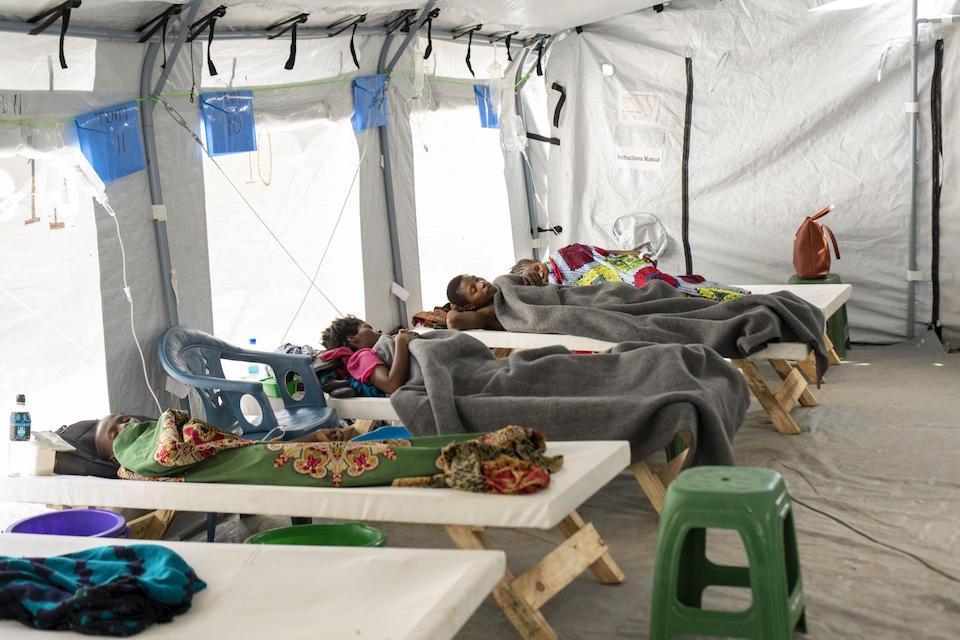
Floods, droughts and tropical cyclones fueling a rapid rise in cholera cases
Across eastern and southern Africa, the devastating effects of floods, droughts and tropical storms are pushing already weakened community health, water, sanitation and hygiene (WASH) systems to the breaking point, fueling one of the worst cholera outbreaks in decades.
By the third week of March, 93,681 cholera cases had been reported in Malawi, Mozambique, Somalia, Kenya, Ethiopia, Zambia, South Sudan, Burundi, Tanzania, Zimbabwe and South Africa.
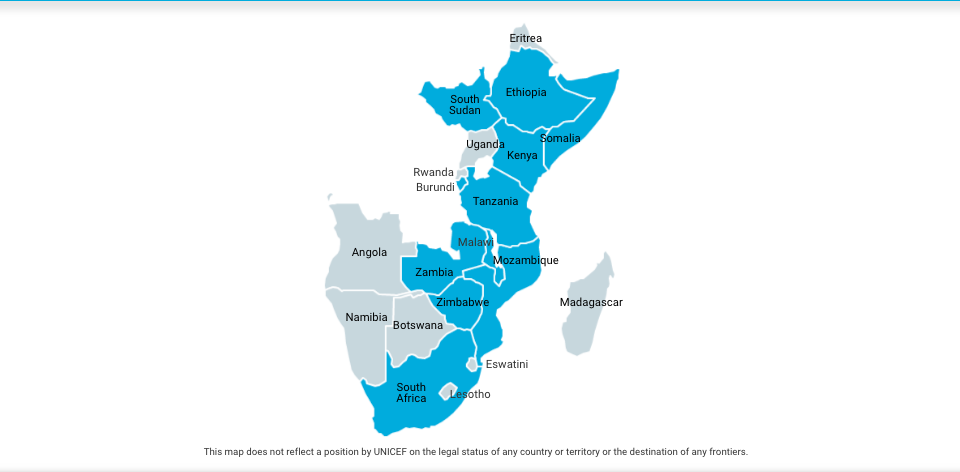
UNICEF-supported cholera treatment centers save lives
Ahmed Aleyi sits on the end of his child's bed in a UNICEF cholera treatment center (CTC) in Melka Buta, Oromia Region, southern Ethiopia. The Horn of Africa — Ethiopia, Kenya and Somalia — is experiencing a prolonged drought, the worst in decades, severely straining the health and WASH systems children rely on for survival.
"We are here because our child has diarrhea and is vomiting," Aleyi said. "The disease started three months ago. It's due to the lack of clean water."
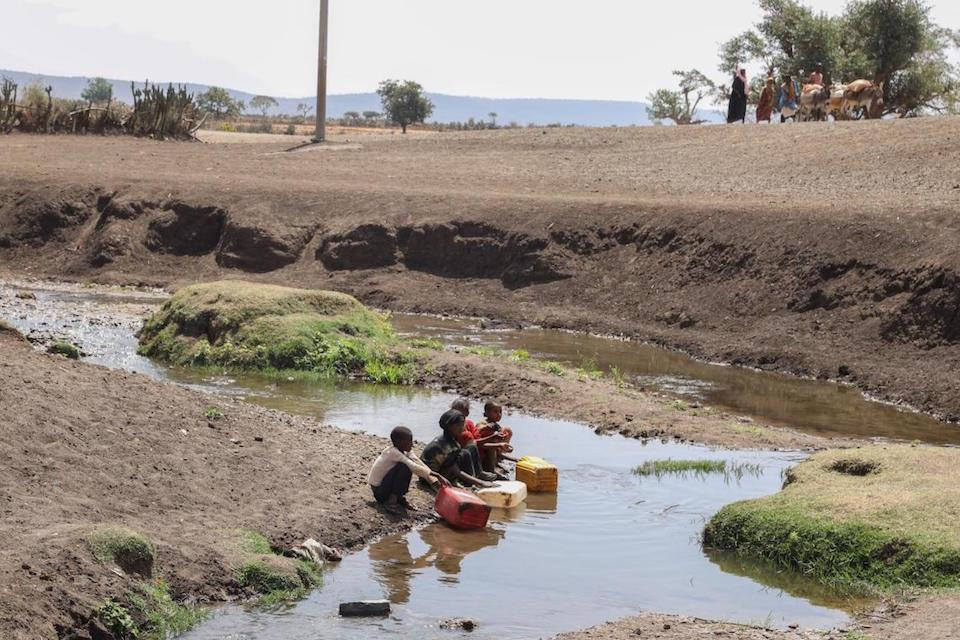
Community awareness campaigns spread health and hygiene information
UNICEF is focused on mobilizing essential lifesaving support, including emergency health supplies, medical products, technical support for outbreak control, risk communication, community awareness activities to promote health and hygiene measures, safe water and nutrition supplies.
"We have treated more than 200 patients," Abdulbaarii Muhamed, a health officer in Melka Buta, said in early March. "This CTC is too small compared to the population here, so we need to expand it and we need additional manpower, as the number of patients is increasing by the day. Our message is that we need special support, and we need your help."
Cyclone Freddy: too much water, not enough water
Flooding and damage caused by Cyclone Freddy, the longest-lasting tropical cyclone ever recorded, have destroyed infrastructure and severely disrupted critical services in Malawi and Mozambique. Enormously high water levels are affecting sanitation; farmlands are flooded and crops ruined. An estimated 4.2 million children are in need of humanitarian aid.
Displaced families are living in crowded emergency shelters with limited access to safe water, hygiene and sanitation — the perfect recipe for an uncontrolled cholera outbreak.
“Cyclone Freddy has taken a devastating toll," said Mohamed M. Malick Fall, UNICEF Regional Director for Eastern and Southern Africa. "Many families in Malawi and Mozambique have had their lives swept away, leaving them with very little, and putting children and the most vulnerable in particular at immense risk."
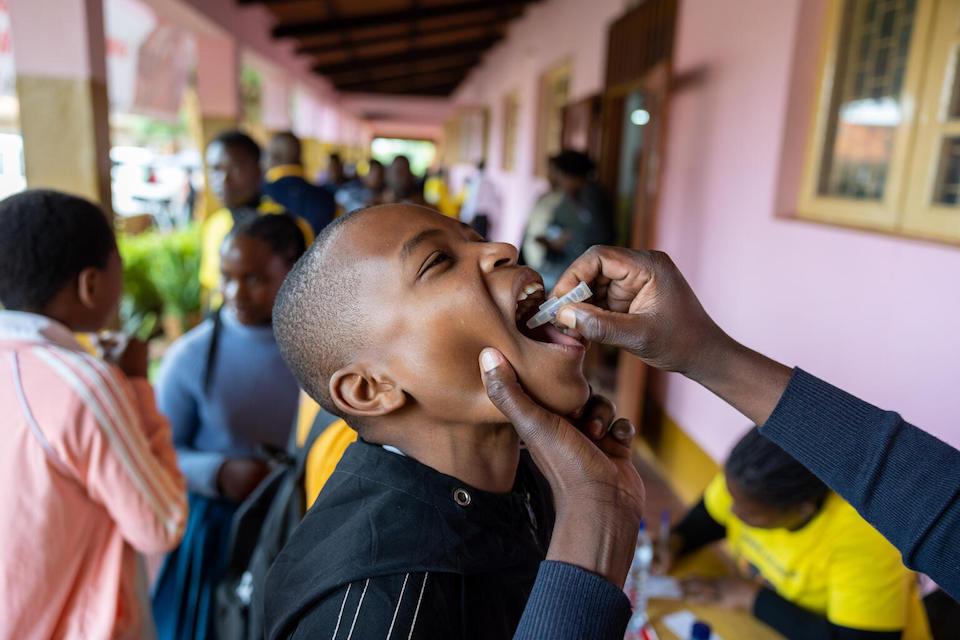
Malawi's deadliest cholera outbreak in recorded history
Even before Cyclone Freddy, Malawi and Mozambique were among the countries most seriously affected by the cholera outbreak. In Malawi, the disease has already claimed more than 1,660 lives. Thousands of children have been infected in all 29 districts.
Lilongwe, Malawi's capital city and one of the country's cholera epicenters, has a case fatality rate of 5.9 percent. When people with cholera receive quality care, case fatality rates are typically below 1 percent — an indication that standards of care in Malawi are inadequate.
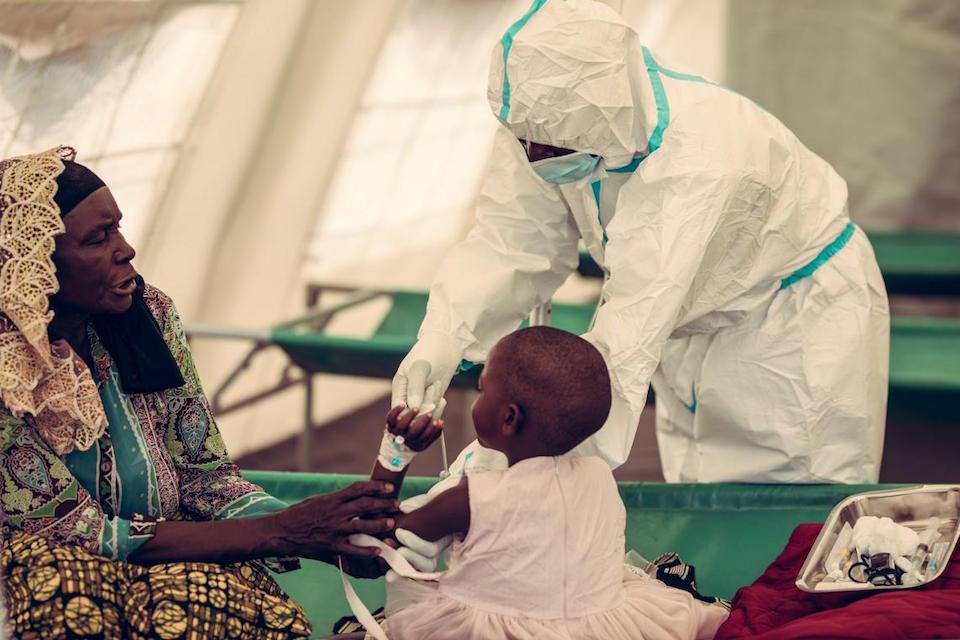
Cholera cases in Mozambique nearly quadrupled from early Feb. to late March 2023
In Mozambique, where Freddy made landfall twice, cholera has been a rising threat since September 2022. Cases have been reported in 35 districts across 7 out of 11 provinces. Between early February and March 20, 2023, the number of cases nearly quadrupled to almost 10,700.
“We are now facing a very real risk of a rapidly accelerating cholera outbreak in Mozambique, a disease which is particularly dangerous for young children, especially those who are malnourished,” said Maria Luisa Fornara, UNICEF Representative to Mozambique.
“UNICEF is working closely with the government to urgently restore access to health, water, hygiene and sanitation interventions to areas hit by the cyclone, but additional support is needed to meet the rapidly growing needs of children and families.”
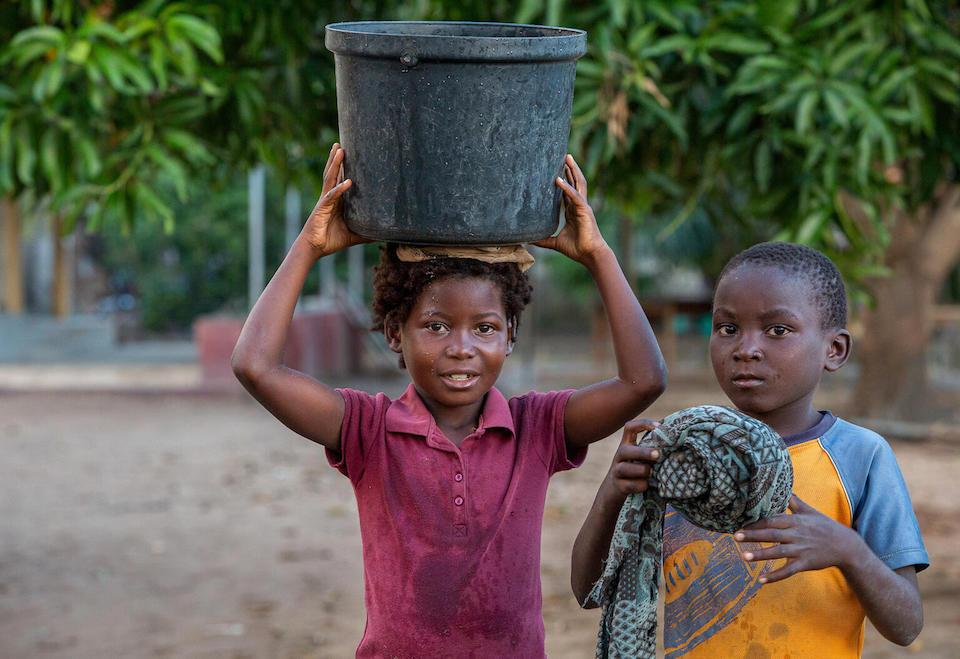
To respond to the increasing needs of children and families in eastern and southern Africa impacted by cholera, UNICEF is urgently calling for funding of $171 million.
Every year, UNICEF responds to hundreds of emergencies in dozens of countries. Your unrestricted contribution helps UNICEF stay at the ready to help children when they need it most. Please donate.
With reporting by Naomi Kalemba
HOW TO HELP
There are many ways to make a difference
War, famine, poverty, natural disasters — threats to the world's children keep coming. But UNICEF won't stop working to keep children healthy and safe.
UNICEF works in over 190 countries and territories — more places than any other children's organization. UNICEF has the world's largest humanitarian warehouse and, when disaster strikes, can get supplies almost anywhere within 72 hours. Constantly innovating, always advocating for a better world for children, UNICEF works to ensure that every child can grow up healthy, educated, protected and respected.
Would you like to help give all children the opportunity to reach their full potential? There are many ways to get involved.



